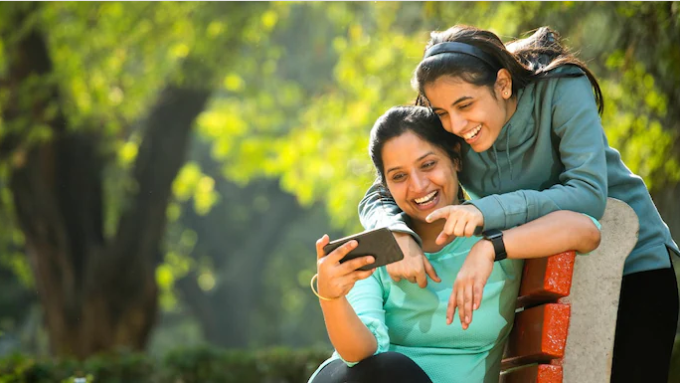Experts believe it will safeguard minors in the face of rising cyber-bullying, exposure to harmful content and privacy breaches while letting them tap their digital potential

In Short
- Indian children under 18 need parental consent for social media.
- Draft rules aim to protect minors’ digital wellbeing.
- Age-gating seeks to ensure safety and responsible usage.
Indian children under 18 will now need the consent of parents to join social media platforms. The draft Digital Personal Data Protection Rules, 2025, released by the Union ministry of electronics and information technology mandate that ‘verifiable consent’ be obtained from parents or legal guardians before processing the personal data of minors, ensuring that they are protected from exploitation.
The provisions are a step towards safeguarding the digital wellbeing of minors in India. “This move aligns with global trends, emphasising on child protection in the digital realm, particularly in the face of increasing cyber-bullying, exposure to harmful content and privacy breaches targeting young users,” says Vinesh Menon, director general and CEO, ARISE (Association for Reinventing School Education), a non-profit organisation.
“This rule could promote a safer environment for minors, reduce impulsive and harmful usage patterns, and encourage responsible digital habits by involving parents in their children’s online choices,” he adds.
Children might gravitate more towards platforms and activities considered educational or constructive when parents are overseeing them.
The draft regulations align with global trends in child protection in the digital realm. For example, COPPA (Children’s Online Privacy Protection Act, 1998) in the United States makes it necessary for parents to be consulted before the collection of any personal data on children under the age of 13.
For the European Union, the General Data Protection Regulation established 16 as the threshold, although member states could lower it to 13. These laws have shaped safer digital landscapes while trying to balance the rights of children to information and expression.
Screens today fill up so many roles, right from learning, work, social connection, chilling and entertainment. Research has correlated screen-time to poor sleep, low self-esteem, higher anxiety, depression symptoms, sedentary lifestyle and lower psychological wellbeing.
“Today there is nothing stopping a 10- or 11-year-old to say they are 18 years old and open an account on social media. After that, it’s difficult to keep tabs on what information the child is consuming. Most parents state it’s a constant struggle to keep phone usage in check,” explains Shalini Sharma, associate director (counselling and wellbeing), Plaksha University, Punjab.
Online problems such as cyber bullying, sexting, and exposure to inappropriate content and predators are some of the things children struggle with today. It helps to wait a bit longer in giving them access to phones and social media.
“There is no magical age for it however; as a psychologist, I suggest delaying social media usage till at least 14-15 years of age. Developmentally, by this age, scepticism and the need to question everything builds up. We want our kids to question and think about what they see on social media,” says Sharma.
Below this age it is difficult, if not impossible, for a child to fully grasp the impact of their actions upon others, online or otherwise, and they are mostly taking in whatever they are seeing. “Most of the socialisation is happening online and group plans are being made through texts or chats. A child can feel sidelined or left out when others in the friend group have a phone, and this can feel like a huge thing to a 12- or 13-year-old,” adds Sharma.
So, it’s important to weigh the socialisation bit when deciding about access to social media. As the internet expands rapidly and the interface becomes more user-friendly, experts believe it is imperative to have age-gating for children under 18 on social media, primarily to ensure their safety and to cater to their developmental needs and mental health.
Highlighting some key reasons, Menon says: “Children, due to their innate nature, do not fully understand the implications of sharing personal data online. Social media sites usually collect sensitive information, and minors are unaware of the risks involved in sharing details such as location, contact information, or other private data. Social media platforms often contain an overwhelming mix of unedited content.”
Children may lack the cognitive and emotional maturity to critically evaluate and filter this information. Early exposure may lead to skewed perceptions regarding body image, self-esteem and societal norms.
Age-gating, combined with parental consent, creates a layer of accountability that might also encourage social media platforms to implement stricter moderation. “For a country like India, where family values emphasise on strong parental oversight, this regulation may encourage a more supportive attitude toward digital engagement,” explains Menon.
Agreeing that age-gating for children under 18 is essential, Sarah Anjum, head of IT at Stonehill International School, Bengaluru, points out: “Social media exposes children to inappropriate content, cyber bullying and privacy breaches, which can impact their mental health and emotional wellbeing. By implementing age-gating, platforms can limit access to harmful material and encourage safer interactions.”
It will allow parents to play an active role in guiding their children’s online behaviour. For example, parents can guide children to engage with educational or creative platforms instead of unrestricted or harmful ones.
In a country where more than 100 million adolescents are internet users, it may be challenging to implement verifiable parental consent, particularly in rural areas where digital literacy is not as advanced. The decision should be supported by full-fledged digital literacy programmes for both parents and children. Psycho education, digital literacy and skills to manage online presence safely, such as blocking certain content based on keywords, are areas to focus on, rather than depending only on the legal regulatory process. A one-size-fits-all approach may not work.
Article Credit: indiatoday